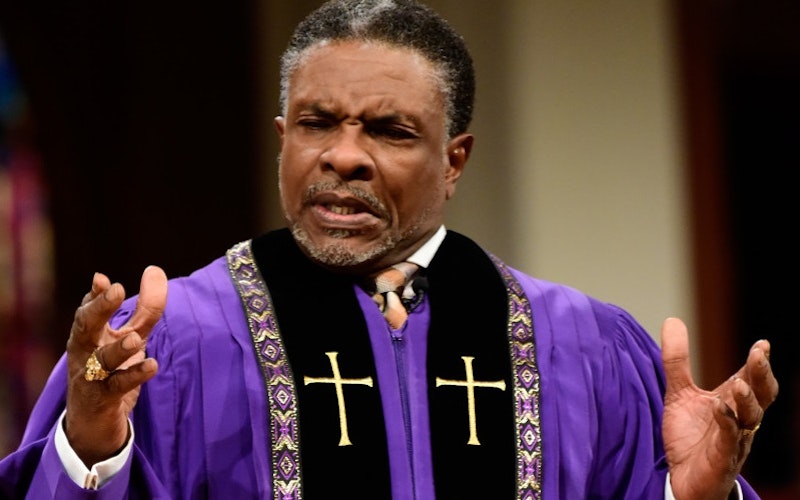
TV
The soapy sincerity of Oprah’s Greenleaf
Good worship is hard to find on television. Few characters go to church; even fewer series take the time to portray a three-dimensional Christian community. To that short list, add Greenleaf, which is in the middle of its first season on Oprah Winfrey’s OWN cable network. And give it bonus points for its lack of cynicism about faith, even as it serves up soapy plots about corruption, secrets, family rivalries and politics.
Take its latest episode, “One Train May Hide Another,” a tightly focused, beautifully structured hour that can stand up to any prestige series on the tube. Mac McCready (Gregory Alan Williams), a prosperous attorney who serves as in-house counsel to his brother-in-law’s megachurch, is about to be named Memphis Man of the Year. But before he can get to the Morgan Freeman-hosted ceremony (“Can’t miss a chance to see Red!” an associate pastor explains while begging for tickets), Mac has both personal and institutional crises to juggle. The church is being audited, and the bishop (played in a towering performance by the great Keith David) berates Mac for not concealing his untaxed “love offering” income. Mac is also trying to remain calm while Grace (Merle Dandridge), the bishop’s prodigal daughter, digs into hints that he sexually abused her sister, driving her to suicide. It all comes to a head in an unhurried, intimate, remarkable scene after the award presentation, back at Mac’s modern apartment overlooking the city, where he quietly discusses his troubled past with a sympathetic teenage girl — all the while flattering her beauty. Before the end credits roll, she’s fixed him a drink, and he’s let her talk him into tasting it.
Greenleaf is distinctive for its generosity and nuance.
There are plenty of points of comparison on TV for Greenleaf. It’s part Scandal, part Empire and part Tyler Perry’s The Haves and the Have Nots (OWN’s biggest scripted hit to date). But two accomplishments set it apart. The first is its ease with the megachurch setting. From the way even family members address each other as “Pastor” and “Bishop” to the call-and-response “God is good / All the time” that members use as a greeting to the city leaders who simultaneously pander to the congregation and want to co-opt them, Greenleaf is written and performed by insiders who know this world and how to open its doors to viewers. Best of all are the worship services. Greenleaf family members sit on the broad stage in ornate chairs, the choir raises the roof with gospel shouting and the bishop’s sermon elicits rhythmic murmurs and “amens” from his congregation. The camera captures covert glances that reflect backstage drama, from who gets a solo to who’s having an affair.
But Greenleaf is also distinctive for its generosity and nuance. Even as the church’s leaders cheat on their spouses, harbor illicit same-sex attractions and scheme to upgrade their luxury jets, they don’t think of their ministry as a “prosperity gospel” scheme. They truly believe, and the spirit sometimes truly moves them. Veteran television writer and playwright Craig Wright (Six Feet Under, Dirty Sexy Money) and executive producer Oprah (who has a recurring role as a Memphis nightclub owner) see these characters as simultaneously sincere Christians, engaged in ministry and outreach, and flawed — often venal — human beings angling for their own benefit, however manipulative or shameful. That’s the world of the church, never more poignantly shown on television than when a couple of girls from the church’s prep school put Mac on the spot by asking if hell is real. His candid answer, which is both confession and personal catechism: “I hope not.”
Topics: TV, Culture At Large, Arts & Leisure, Theology & The Church, The Church